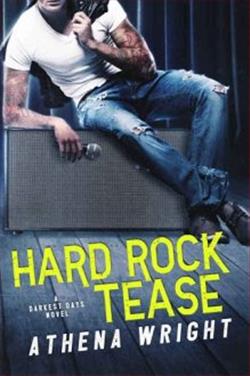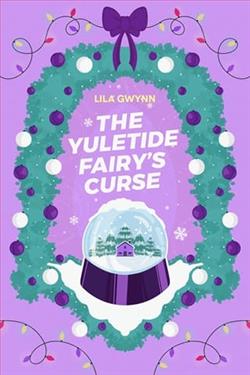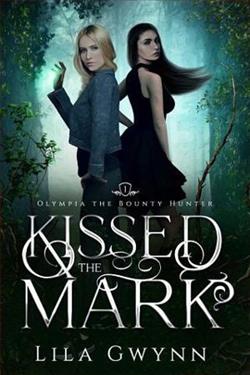Page 56 of What Cannot Be Said
“Not to my knowledge. But then, one can never be entirely certain.” Hendon drew hard on his pipe. “If his daughter hadn’t also been killed, then I’d say Ivo could quite reasonably come under suspicion. But the girl was killed.” He nodded to the chessboard, the smoke curling out of the corners of his lips. “Your move. Let’s see you get out of that one.”
Sebastian shifted his knight. “Checkmate.”
?Leaving the Earl’s house some time later, Sebastian paused on the front steps, his gaze on the broad, parklike private gardens of the square that stretched out before him. Grosvenor Square was one of the largest of London’s squares, its central expanse of lawn, shrubbery, and leafy trees sprawling over more than five acres. Unlike in most of London’s squares, the residences here had for the most part been individually constructed and thus were not uniform in either appearance or size.
Lying on the far side of the square, Sir Ivo’s town house was one of the area’s larger establishments, five bays wide, with four main stories in addition to its basement and attics. Its stone-faced classical facade was well tended, the front door freshly painted black, the brass knocker, doorknob, and oil lamps polished to a high sheen. If its owner was in the kind of financial difficulties that might inspire an unscrupulous man to kill his own wife in order to marry a rich widow, it wasn’t readily apparent.
Still thoughtful, Sebastian descended the steps and walked toward McInnis House, skirting the square. He could hear the voices of children playing in an open grassy area of the square beyond a nearby stand of plane trees, and for one unguarded moment the sound of their laughter sent him hurtling back in time to his own youth, when he, too, had played here as a child. And it occurred to Sebastian that eighteen or nineteen years ago, when Laura first came to her husband’s town house on the square as a young bride, Sebastian himself would still have been at Eton. But if he had ever seen her here at that time, he couldn’t recall it. She would have been just one of the many young mothers he would sometimes glimpse on a sunny afternoon, walking or playing here with her children.
Had she ever been happy in her marriage? he wondered. Even in those first years? Or had she realized all too soon the magnitude of the mistake she had made when, thinking her first love dead, she married her brother’s best friend?
Pausing across the street from McInnis House, Sebastian let his gaze drift over the silent, black crepe–draped facade before him. Three children had been born to that ill-fated marriage: Malcolm, at eighteen the eldest and Ivo’s heir; Emma, sixteen; and Thisbe, twelve. Even if Malcolm hadn’t been off on a fishing trip to Scotland with his cousin, he would no doubt have scorned participating in such a tame family outing to Richmond Park. But Thisbe was only a year younger than her cousin Percy, and it bothered Sebastian that no one had ever explained why she wasn’t included in Sunday’s doomed expedition.
He was about to turn away, toward Brook Street, when he became aware of Sir Ivo, dressed in buckskin breeches and glossy top boots, approaching on foot from Bond Street. At the sight of Sebastian, the Baronet paused, then shifted direction slightly to cross the street and come right up to him.
“Were you looking for me?” demanded Sir Ivo, his eyes narrowed and hard.
“Not exactly, but I’m glad you caught me. I was wondering if you’d discovered why your daughter Thisbe didn’t take part in the expedition to Richmond Park. Was she ill?”
“I told you, I have no idea. I can only be thankful that she wasn’t there.”
“I would still be interested in speaking to her.”
“And I’ve already explained why that’s impossible,” snapped McInnis, starting to turn away.
Sebastian raised his voice. “I understand you’re quite friendly with a widow named Olivia Edmondson. An attractive, wealthy young widow.”
Sir Ivo drew up and pivoted to face him again. “What the devil is that supposed to mean?”
“I assume you don’t need me to repeat the rumors.”
Sir Ivo stalked back to him, not stopping until he was less than two feet away. “You bloody son of a bitch,” he hissed, pitching his voice low. “You leave Olivia out of this, you hear me? She has nothing to do with what happened, just as Laura and Emma’s deaths have nothing to do with you. Nothing. I swear to God, if you don’t quit poking into my life, I’ll—” He broke off, his jaw tightening.
“You’ll... what?” prompted Sebastian, his gaze on the older man’s dark, angry face. “Hire a couple of thugs to jump me? As it happens, someone already tried that. Last night.”
“Then it’s a bloody shame they failed,” snarled Sir Ivo, and swung abruptly away.
Chapter 34
The girl sat in a straight-backed chair, her hands folded in the lap of her plain stuff gown, her neat, light brown hair wrapped around her head in plats. Her name was Mary Paige, and she was currently apprenticed to a haberdasher in Long Acre, after having been beaten and starved by her previous mistress. It was Laura McInnis who had saved the child and who had arranged for Hero to interview her, so Hero supposed it was inevitable that she found herself thinking about her dead friend now as she settled in an armchair across from Mary in the parlor of the girl’s new mistress, an older woman named Mrs.Ingles. Mrs.Ingles had fussed around them long enough to vaguely annoy Hero, but had finally retreated with her sewing to a chair in a far corner.
“How old were you when you were apprenticed to”—Hero glanced at her notes—“Mrs.Keeble, wasn’t it?”
The girl nodded. She was fifteen now, small and fine-boned, with large brown eyes and a pointed chin. “I was eleven, ma’am.” The haberdasher looked up from settling herself in the distant corner and hissed, and the girl quickly corrected herself. “I mean, my lady.”
“That’s quite all right, Mary,” Hero said quietly with a smile. “You were apprenticed by one of the workhouses?”
“Yes, my lady. M’ father was killed in the fighting in Spain the summer before, you see. Me and my mother and my brother, Wills, we did all right as long as it was still warm, selling nuts and apples and such in the streets. But then it got cold, and Wills died, and m’ mother got sick and couldn’t go out selling anymore. Mama tried to put it off as long as she could, but in the end there was nothing we could do but go into the workhouse.”
“And which workhouse was that?”
“St. Martin’s, my lady.”
“They’re the ones who apprenticed you to Mrs.Keeble?”
Mary hung her head. “Yes, ma’am—I mean, my lady. The girl they’d given her before had run away, so she needed somebody new.”
“How long were you with her?”















